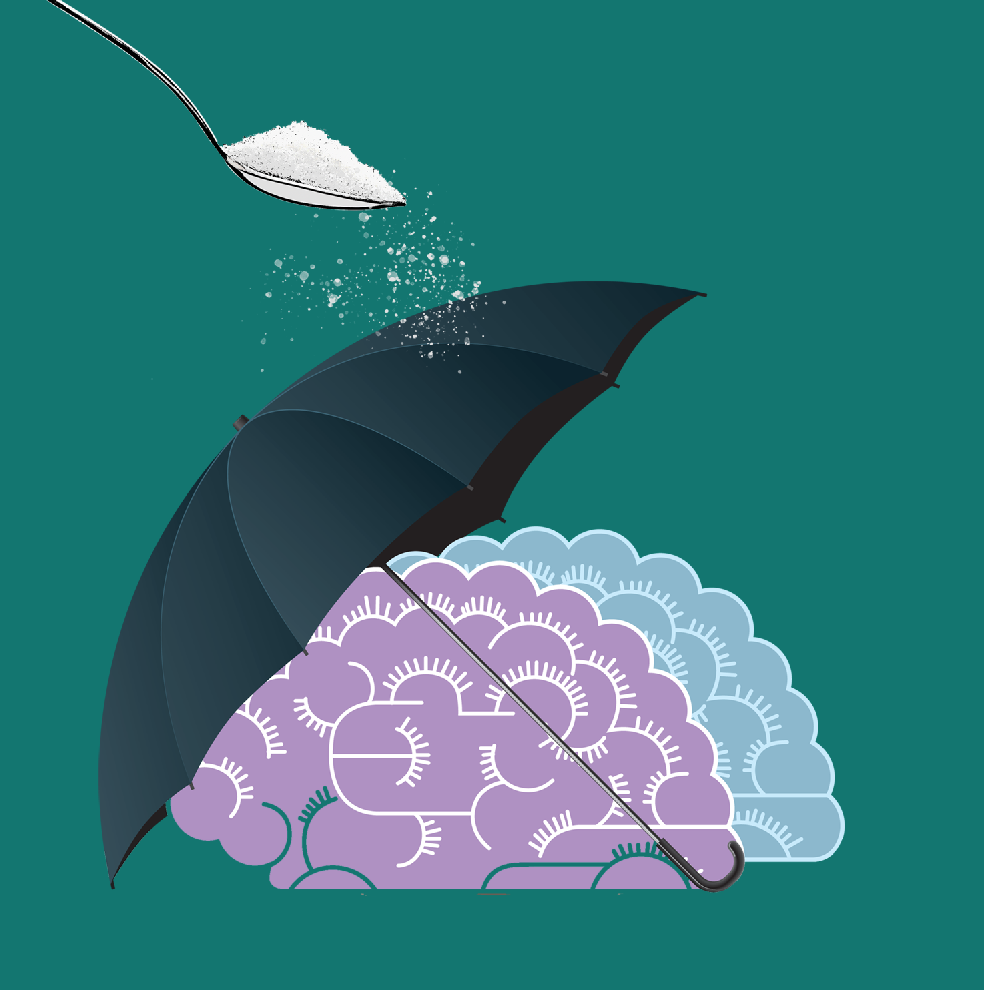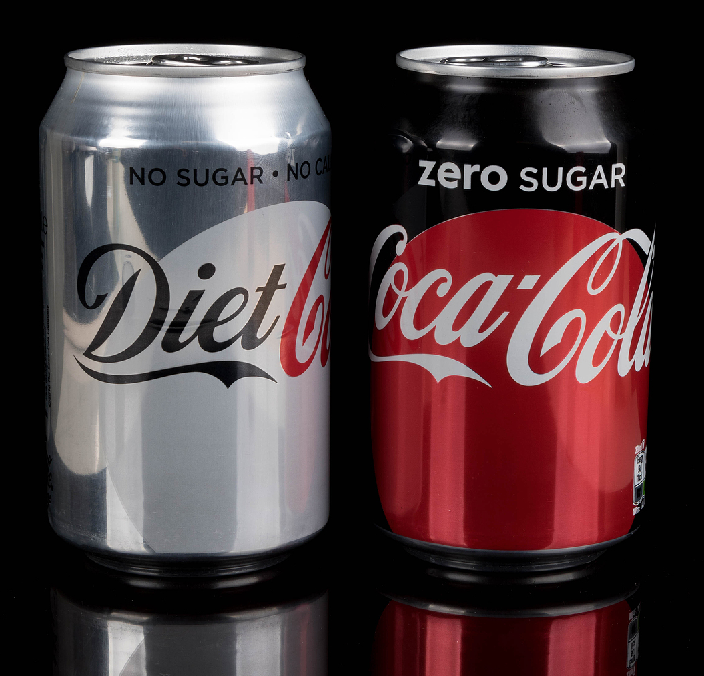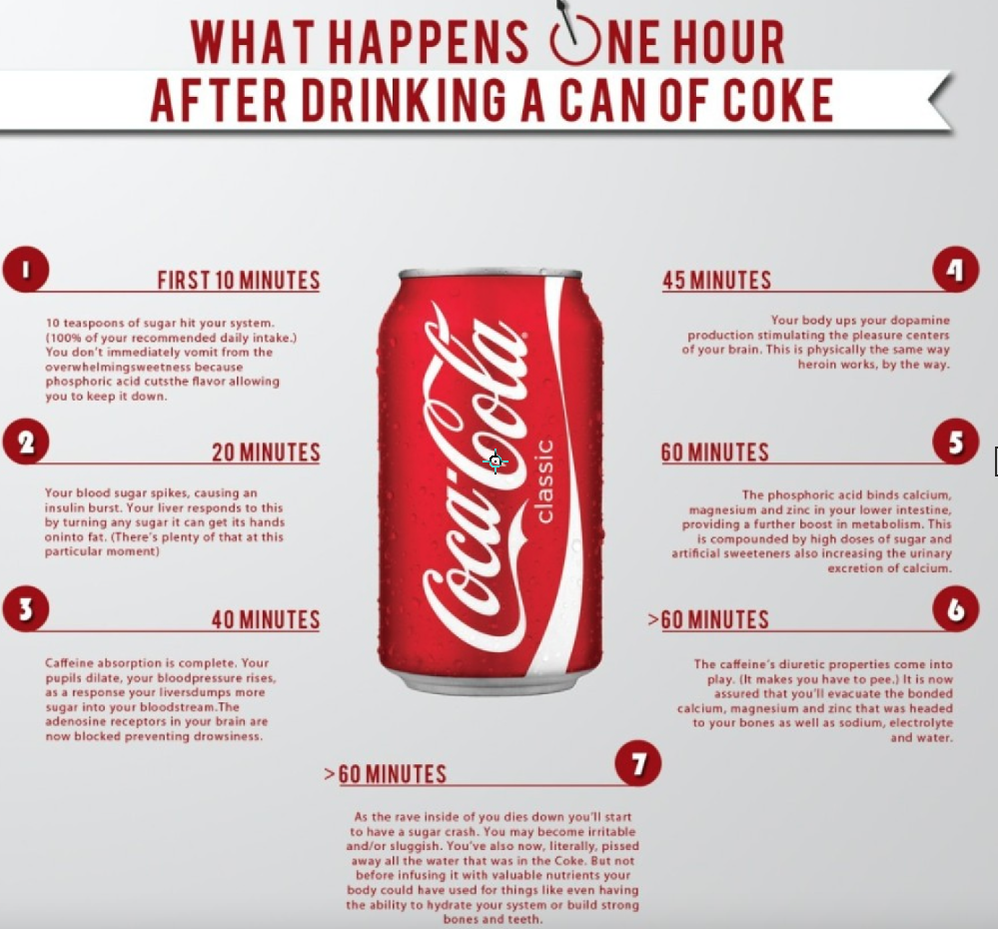For example, while a single 12-ounce soda may indicate it contains just 150 calories, 140 of those come from a whopping 39 grams or almost ten teaspoons of sugar! But, as you’ll see below, sugar substitutes like aspartame are not a “healthier” choice either. And as research has shown, aspartame can indeed be detrimental to brain health. No one would argue about the negative impacts of sugar-laden sodas and other products, such as highly processed convenience foods and snacks. Over-consumption of sugar can contribute to increased systemic inflammation that we know is at the root of virtually every disease, including neurological and cardiovascular conditions. Current data indicates that the average American youth consumes roughly 81 grams of sugar per day and American adults consume an average of 77 grams of sugar per day, amounting to nearly eight teaspoons each day. The general guidelines recommend that:
But, for perspective, measure out six to nine teaspoons in a bowl. Visually, that just seems like an awful lot of sugar we’re putting in our bodies on a regular basis! So why are all the marketing campaigns over the years, like that popular advertising tune, “I'd like to buy the world a Coke,” making it seem as if all of life’s events should be accompanied by a soda and encouraging people to have a big gulp of entirely too much sugar? Combined with what can be limited access to fresh, whole foods, it’s no wonder that as a nation so many people are suffering the challenges of obesity. It is estimated now that nearly one in three adults (30.7%) are overweight and two out of five are obese; in children, approximately one of six are overweight and one out of five are obese. Diet sodas: A not-so-healthy alternative. But, what about those Diet Cokes and other reduced-calorie sodas that so many choose as a “healthier choice?” The Coca-Cola Company first introduced Diet Coke in 1982 and in 1983 began using aspartame as the drink’s artificial sweetener ingredient.
What are the risks? Dozens of studies have linked aspartame — the world’s most widely used artificial sweetener — to serious health problems, including cancer, cardiovascular disease, Alzheimer’s disease, seizures, stroke and dementia, as well as negative effects such as intestinal dysbiosis, mood disorders, headaches, and migraines. People drinking diet soda daily were almost three times as likely to develop stroke and dementia as those who consumed it weekly or less. This included a higher risk of ischemic stroke, where blood vessels in the brain become obstructed, and Alzheimer’s disease dementia, the most common form of dementia, as reported in a 2017 study in Stroke. In a 2012 study in the Journal of General Internal Medicine, participants who drank diet soft drinks daily had an increased risk of vascular events compared to those who drank no diet beverages. Researchers at the University of Iowa found similar results by analyzing data from the Women's Health Initiative (WHI), which tracked the medical histories and health habits of more than 93,000 women. In comparing women who consumed two or more diet drinks a day to those who never or occasionally did, they showed that diet beverage drinkers were 30% more likely to have a cardiovascular event and 50% more likely to die from a related disease. And, a recent study published September 2022 in the BMJ, which involved more than 100,000 adults in France, found a potential link between consumption of artificial sweeteners and heart disease. Aspartame also has been linked to behavioral and cognitive problems including learning problems, headache, seizure, migraines, irritable moods, anxiety, depression, and insomnia, wrote the researchers of a 2017 study in Nutritional Neuroscience. Aspartame identified as a neurotoxin that changes the brain now and for future generations. A new study finds that the consumption of aspartame, a widely used artificial sweetener, produces anxiety-like behavior in mice, along with epigenetic changes in the amygdala. The amygdala is a part of the brain associated with regulating anxiety and fear. These changes persisted for up to two subsequent generations. The study’s findings point to follow-up research regarding aspartame and anxiety in humans. After learning more about aspartame, I recommend that patients avoid this product that is clearly toxic to the body and the brain. Things go better without a Coke, or any other diet soda that uses chemical replacements for sugar. Talk to your doctor about alternatives, like sparkling waters flavored with fruit essence or a slice of citrus, unsweetened green, black, or herbal tea, and other healthful options! In health and healing,
Dr. Suzanne Gazda References: Harvard Health Publishing – The sweet danger of sugar. https://www.health.harvard.edu/heart-health/the-sweet-danger-of-sugar National Institutes of Health, National Institute of Diabetes and Digestive and Kidney Diseases https://www.niddk.nih.gov/health-information/health-statistics/overweight-obesity Eat this, not that: diet sodas https://www.eatthis.com/drinking-diet-soda-bad-for-you-doctors/ Centers for Disease Control and Prevention https://www.cdc.gov/nchs/products/databriefs/db109.htm Aspartame Facts https://aspartame.org/aspartame-products/#.VNO3MFXF_w4 The Health Risks of Aspartame https://usrtk.org/sweeteners/aspartame_health_risks/#history Pase, M. et al. Sugar- and Artificially Sweetened Beverages and the Risks of Incident Stroke and Dementia: A Prospective Cohort Study. Stroke. 20 April 2017. https://www.ahajournals.org/doi/10.1161/STROKEAHA.116.016027 Vyas, A., Rubenstein, L., Robinson, J. et al. Diet Drink Consumption and the Risk of Cardiovascular Events: A Report from the Women’s Health Initiative. J GEN INTERN MED 30, 462–468 (2015). https://doi.org/10.1007/s11606-014-3098-0 Debras C, Chazelas E, Sellem L, Porcher R, Druesne-Pecollo N, Esseddik Y et al. Artificial sweeteners and risk of cardiovascular diseases: results from the prospective NutriNet-Santé cohort BMJ 2022; 378 :e071204 doi:10.1136/bmj-2022-071204 https://www.bmj.com/content/378/bmj-2022-071204 Czarnecka K, Pilarz A, Rogut A, et al. Aspartame-True or False? Narrative Review of Safety Analysis of General Use in Products. Nutrients. 2021;13(6):1957. Published 2021 Jun 7. doi:10.3390/nu13061957 https://www.ncbi.nlm.nih.gov/pmc/articles/PMC8227014/
0 Comments
Your comment will be posted after it is approved.
Leave a Reply. |
AuthorDr. Suzanne Gazda, Integrative Neurology Archives
February 2024
Categories |



 RSS Feed
RSS Feed